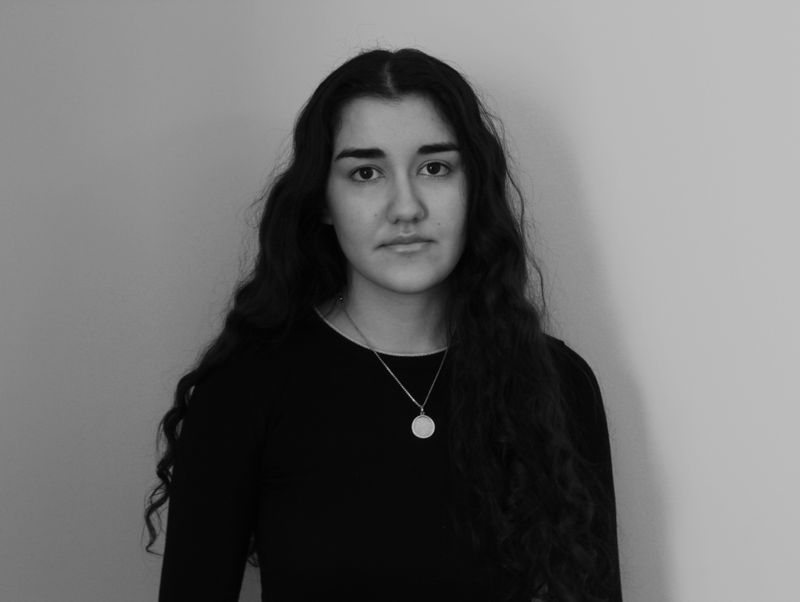We Are America
The American Identity
By Sarah

North Quincy High School, Massachusetts
Growing up in an immigrant household, the idea of what made up an American seemed blurred at times. First and foremost, my parents always told me to be proud of my ethnic identity, while my American identity was lost along the way. I think they were nervous that I would lose my heritage because I was growing up so far away from Albania. At times, I believed that I was too American and that I was letting them down in some way. I wasn’t fluent in Albanian and I always felt out of place anytime we visited. Those moments of uncertainty made me think of the reality my par- ents went through. Growing up during a communist regime and immigrating to a new country both seemed hard enough individually, let alone together. When I began to ask my parents about their experiences, it was then that I began to see America through a new set of lenses.
The topic of my parents’ childhoods wasn’t discussed until I took the initiative to start asking questions. Throughout scattered moments, my mom would tell me about some experiences she had. She told me about how she and her classmates had a chant they sang in honor of the Albanian dictator, while playing on the playground. She told me how when the dictator became sick, she and her classmates were forced to write individual poems to him. These practices seemed both strange and humorous to me, but I realized that other moments were not as funny. The development of fear during the regime became obvious in many ways, like how the citizens reacted to the dictator’s death in 1985. The people were noticeably happy, even my grandfather, which terrified my grandmother, who feared he would be taken away. At the dictator’s funeral everyone was expected to cry and those who didn’t were punished. After hearing these stories, I began to realize how privileged I was to have grown up in America and not in the circumstances my parents endured.
The moment I really had a revelation was when I realized that other Americans were not as fortunate as me and had gone through experiences like my parents, and maybe even worse. In many different countries, the perception of Americans is as big-headed, lazy individuals with limited struggles. But this stereotype excludes immigrants like my parents, the same way I did. I began to see America not only for its flaws and opportunities, but more so for its people. I began to realize why politicians said that it was the people that made up the country, because whether it was one hundred years ago or one year ago, people like my parents make America what it was and what it is today. Those who came from harder circumstances to America are at the core of what America stands for. It was easy for me to critique America on its many flaws, but I never recognized the obvious strengths: The American people are more of a reflection of our country than any politician would ever be.
Looking back on my generalization of Americans makes me cringe. Just because I imagined the American public to match me also doesn’t mean I think lowly of myself. It really means that I’ve fully recognized the privilege I hold growing up in this country. It also made me look at my parents differently and I began to understand them more. But, most importantly, it made me recognize both parts of my identity: as Albanian and American. Hearing of my parents’ struggles shocked me, especially in comparison to the rich culture Albania has now, but it also made me proud to be Albanian. Realizing what I did about America made me proud to say that I come from a country of strong individuals and their children.
© Sarah. All rights reserved. If you are interested in quoting this story, contact the national team and we can put you in touch with the author’s teacher.